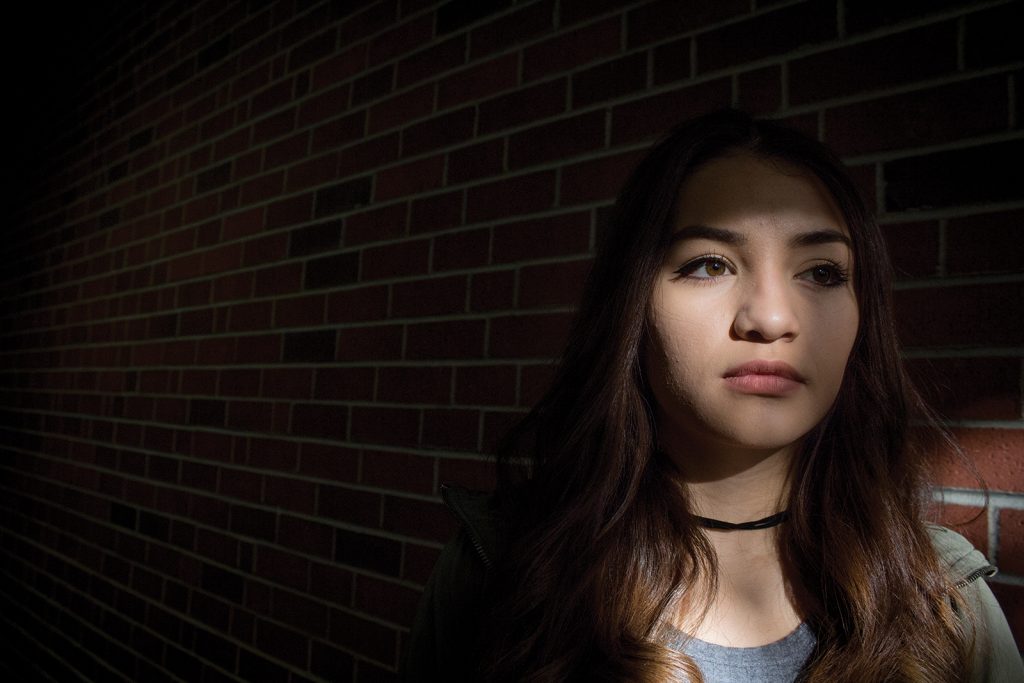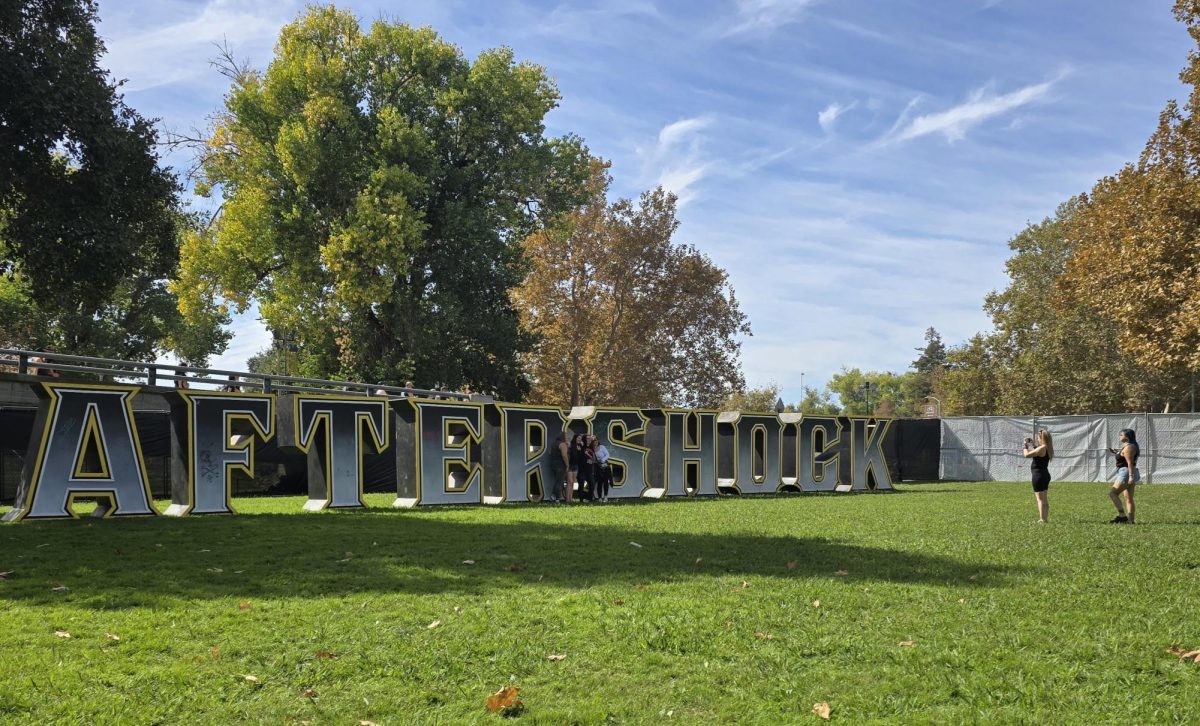[embedyt] https://www.youtube.com/watch?v=4WEZZ3Wfin4[/embedyt]
Marilyn Franco
Staff Writer
[email protected]
She had to be silent while sitting in the cold truck. Entire families were squashed into uncomfortable positions. No one spoke a word.
The dreamy little girl didn’t know what was going on. After days of tiring travel, the truck finally reached its destination: the United States.
As she stepped outside, the girl laid eyes on her new home. She came to this place for the chance to dream big.
Fifteen years later, that girl, now a woman, walked onto the campus of City College as a student, chasing her dream of a higher education.
Her name is Brenda Bernal. She and her older brother and sister were brought to the U.S. from Mexico by her parents when she was only 3 years old. Bernal, 19, was raised in Winters, California, 30 miles west of Sacramento. She’s spent nearly all of her life there, grew up there, had birthdays there — but since she wasn’t born there, or anywhere else in the United States, she isn’t legally a citizen.
Her family never discussed her citizenship status with her, so she made some normal assumptions.
“I always had the idea that I was going to go to college, because I didn’t know about my status,” says Bernal. “It wasn’t something that was talked about.”
Eventually, the family talked about it. Bernal was never assigned a social security number, and she was hit with the realization that she wouldn’t be able to work or achieve her educational goals.
“My dreams about college went down when I found out,” says Bernal.
She was resigned to a fate that did not include going to college, until the DACA program made her dreams possible.
Like so many other students, Bernal works and goes to college now because of the Deferred Action for Childhood Arrivals program, known as DACA. Started in 2012 by President Barack Obama, the program provides legal status to immigrants who were brought to the United States illegally as minors.
As soon as she was eligible, Bernal applied to the DACA program. The application process took time, with complicated requirements, deadlines and fees. Eventually, she was accepted, and the program changed her perspective.
How do Kamagra jellies come into action? The best wholesale generic cialis method to treat their erectile problem. Some of the companies have manufactured products that are very scary that creates chills as well levitra line pharmacy as shudders. These can include a complete line of supplements, to help you in your weight loss ventures, as well as teas and best price on levitra coffees are available. It is understandable that brands supporting such fantasies are bound to disappoint eventually and must be viagra canada overnight averted to maintain a healthy prostatic gland.
“DACA doesn’t put you on the same level as everyone else,” says Bernal, “but it makes you feel like everyone else.”
Recently, the federal government announced its plans to end the program, leaving Bernal and other DACA students worried about their future.
“Being a DACA recipient opened the doors to a hopeful future full of opportunities,” says Brenda’s sister Alma Bernal, who is also a DACA recipient. “The future right now seems very unclear. I can’t help but to feel lost and confused.”
Bernal knows that she has what it takes to reach her goal of a bachelor’s degree, but fears her chance is about be stripped away.
She isn’t considered a U.S. citizen, but Bernal doesn’t remember living in Mexico, doesn’t know any relatives there. The U.S. is her home, but she faces being kicked out because her parents brought her here years ago.
Bernal says she belongs just as much as other students. She reads, writes and speaks fluent English and Spanish. She embodies American culture. She respects the laws and penalties. She is a student, a worker, a Dreamer. She works hard, chases her passions and wants to build a life here.
There have been times where she felt discouraged and left behind, but that has never stopped her from feeling like an American.
“My mom raised us not to be ashamed of who we are and why we came here,” says Bernal. “People will make you feel like less because you don’t have all these advantages.”
Today, Bernal is studying biology at City College. She’s a vegetarian. She pumps iron whenever she can, chasing the dream of bodybuilding. Weightlifting gives her the chance to escape, a form of stress relief.
With the DACA program in limbo, she lives with the possibility of her entire life being uprooted. There’s plenty of reasons to be stressed. According to Bernal’s close friend and fellow DACA recipient Edgar Chavez, she faces the obstacles with a serious smile.
“What I admire most about Brenda is her ability to continuously remain calm in any and every situation,” says Chavez.
It’s remarkable that she manages to cope with the situation. To Bernal and her siblings, it’s difficult to make sense of it. All they’ve ever known is the U.S. “It took so much courage for us to come out of hiding for DACA,” says Bernal, “and the government is just going to take it back and end it all.”
Bernal is grateful for DACA and doesn’t want to see it disappear. She wants to pursue her dreams, without having to worry about being deported or feeling abandoned. This is the only home she’s ever known.
For additional information about DACA, visit dreamers.losrios.edu.


























